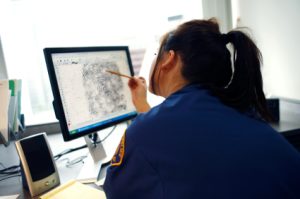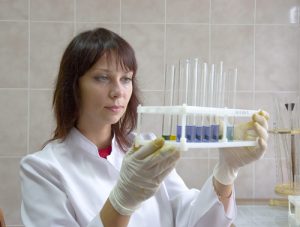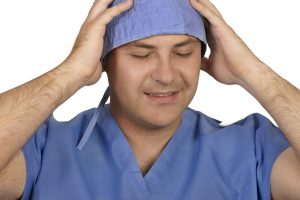In the intricate landscape of healthcare, the specter of malpractice healthcare issues looms large, posing substantial risks not only to patient well-being but also to the integrity and sustainability of medical practices. At its core, medical malpractice represents a critical concern that intertwines with both ethical obligations and legal mandates, demanding meticulous attention to detail and an unwavering commitment to patient care. The pursuit of healthcare reform has intensified the focus on reducing malpractice lawsuits, thus safeguarding both patients and healthcare professionals. This task, while daunting, is indispensable for reinforcing trust in healthcare systems and ensuring the provision of safe, high-quality medical services.
Addressing malpractice healthcare involves a multifaceted strategy, incorporating robust improvements in communication, the enhancement of medical training, and the effective implementation of technology solutions. Furthermore, it necessitates the establishment of strong policies and procedures, underpinned by thorough documentation processes, to mitigate the likelihood of malpractice incidents. Equally critical is the endeavor to encourage patient involvement in their care, fostering a collaborative approach that serves as a safeguard against potential oversights. Additionally, insights gleaned from healthcare practices in other countries offer valuable lessons in curtailing malpractice issues. Through a comprehensive exploration of these themes, this article aims to delineate actionable strategies that healthcare providers can adopt to minimize the occurrence of medical malpractice, aligning with the dual objectives of healthcare reform and the enhancement of malpractice insurance for healthcare professionals.
Legal Nurse Consultants can also help educate and help healthcare professionals better protect themselves from possible malpractice cases. If a nurse and interested in becoming a Legal Nurse Consultant, then please review AIHCP’s Legal Nurse Consulting Program. AIHCP also offers a Healthcare Legal Consultant and Malpractice Program, as well as a program in Healthcare Ethics.
The blog below addresses many issues in reducing malpractice possibilities in one’s practice.
Understanding Medical Malpractice

Medical malpractice, as generally defined, involves improper, unskilled, or negligent treatment of a patient by healthcare professionals, including physicians, nurses, dentists, pharmacists, and others. This misconduct can occur in any healthcare setting and affects not only the patient but also the integrity of the practice and the broader healthcare system.
Definition
Medical malpractice claims arise when a healthcare professional fails to provide the standard quality of care expected, resulting in injury or harm to the patient. This legal concept is rooted in the principle that medical professionals owe a duty of care to their patients, and breaching this duty can lead to legal actions. The most comprehensive definition frames medical malpractice as an act of omission or commission in planning or execution that contributes to an unintended result.
Common Causes
The causes of medical malpractice are varied and can occur at multiple levels of patient care. Common causes include:
- Prescription Medication Errors: Incorrect medication or dosage can lead to severe patient harm.
- Misdiagnosis or Failure to Diagnose: Wrong diagnosis or missed diagnosis can delay critical treatment, causing patient deterioration.
- Surgical Errors: These include wrong-site surgery, unnecessary surgery, or leaving instruments inside the patient’s body.
- Inadequate Patient Monitoring: Failure to monitor a patient’s condition can lead to preventable complications.
- Failure to Obtain Consent: Performing procedures without patient consent is not only unethical but also illegal.
Impact on Patients
The impact of medical malpractice on patients can be devastating, encompassing physical, emotional, and financial damages. Patients may experience loss of work, permanent disability, and loss of quality of life. In severe cases, medical malpractice can lead to death, with surviving family members entitled to compensation for their loss. Moreover, the fear of malpractice can erode trust between patients and healthcare providers, impacting patient care and outcomes.
Medical malpractice not only affects individual patients but also has broader implications for the healthcare system, leading to increased healthcare costs and a tarnished reputation among medical facilities. This necessitates robust policies and training to mitigate risks and enhance patient safety.
Improving Communication
Effective communication within healthcare settings is not only pivotal for patient satisfaction but also for reducing the risk of malpractice. It involves various stakeholders including physicians, patients, and the entire medical staff, necessitating comprehensive strategies to enhance interaction and understanding.
Physician-Patient Communication
Patients often gauge the quality of their healthcare not on the technical skills of the provider, but on their ability to effectively communicate. A significant gap often exists between what physicians believe has been communicated and the patient’s understanding of that information. For instance, while doctors might think that the majority of patients comprehend the potential side effects of their medications, studies, such as one conducted by the University of Kansas School of Medicine, reveal that a much lower percentage of patients actually grasp this crucial information. This discrepancy can lead to serious health outcomes, where patients may fail to follow through with prescribed treatments or fail to communicate their health concerns accurately.
To bridge this communication gap, healthcare providers are increasingly being trained in effective communication strategies. Programs like the “Thriving in a Busy Practice” developed by Kaiser Permanente focus on enhancing the ability of physicians to interact effectively with patients even in challenging situations. These training programs often include role-playing scenarios to deal with difficult patient interactions, enhancing physicians’ skills in managing care and educating patients.
Role of Staff
The role of the medical staff in facilitating communication extends beyond the physicians to include nurses, physician assistants, and administrative personnel. Effective communication within these teams is crucial for ensuring that patient care is seamless and safe. For example, the Joint Commission’s Safety Goals highlight the importance of accurate communication of critical test results and verbal orders through protocols like “read-back” verification. This process requires the person receiving the information to repeat it back to the practitioner to confirm accuracy, thereby minimizing the chances of miscommunication.
Training Programs
Training programs play a critical role in equipping healthcare professionals with the necessary communication skills to improve patient outcomes. These programs are often tailored to address specific needs such as managing cross-cultural communications, dealing with ‘problem’ patients, and enhancing empathic responses. For instance, an online course designed to enhance communication skills covers topics from non-verbal cues to handling challenging communication scenarios with patients and colleagues. These programs not only focus on verbal interactions but also on written communications, ensuring that empathy and clarity are maintained across all forms of patient interactions.

Furthermore, training is not limited to current healthcare providers. Medical education curricula are increasingly incorporating communication training to prepare future healthcare professionals. This foundational training covers basic yet crucial aspects such as effective listening techniques, which encourage patients to express their concerns more freely, thereby facilitating better diagnosis and care.
In conclusion, enhancing communication in healthcare settings involves a multidimensional approach focusing on training, staff roles, and direct physician-patient interactions. These efforts collectively work towards reducing misunderstandings and improving the overall quality of patient care, which is essential in minimizing the risks of medical malpractice.
In addition, healthcare professionals trained in healthcare ethic consulting can help professionals better avoid ethical pitfalls that can lead to malpractice. In addition, Legal Nurse Consultants, as well as Healthcare Legal and Malpractice Consultants can help healthcare professionals have a more successful practice with less fear of malpractice.
Enhancing Medical Training
Continuous Education
Continuous education in the medical field is pivotal for maintaining high standards of patient care and minimizing malpractice risks. Programs like the “Focus on Malpractice Prevention” offer healthcare professionals, especially nurses, continuing education (CE) accredited through the American Nurses Credentialing Center. These programs are designed using materials that address frequent and critical risk areas in healthcare. By participating in these courses, which feature interactive presentations and case-based questions, medical professionals can stay updated on best practices and reduce potential liabilities. Notably, nurses who complete these modules can benefit from significant discounts on their continuing education costs and malpractice insurance premiums, emphasizing the financial and professional incentives of ongoing education.
Simulation Training
Simulation training has emerged as a critical tool in medical education, aimed at reducing medical errors and enhancing patient safety. Mandating bi-yearly simulation training for all healthcare providers can significantly decrease malpractice claims, as evidenced by research involving obstetrician-gynecologists. These training sessions provide a realistic, risk-free environment where medical professionals can refine their skills in high-pressure scenarios without endangering patient safety. The benefits of simulation training extend beyond technical skills, fostering essential competencies in communication, teamwork, and decision-making, which are crucial in preventing medical mishaps.
Case Studies
Integrating case studies from real malpractice claims into medical training curricula can provide invaluable learning opportunities for healthcare professionals. These case studies help in understanding the underlying factors of medical errors and developing strategies to prevent similar incidents. Programs like “Reducing the Risk of a Malpractice Claim” utilize real cases to teach best practices and safety-enhancing strategies. Furthermore, learning from past errors, such as those documented in malpractice claims, allows medical trainees to identify and address knowledge gaps and contextual factors that could lead to patient harm. This approach not only enriches the clinical reasoning skills of the learners but also prepares them to handle complex and atypical cases more effectively, thereby reducing the likelihood of diagnostic errors.
Implementing Technology Solutions
In the modern healthcare landscape, the integration of technology solutions such as Electronic Health Records (EHRs), Telemedicine, and Artificial Intelligence (AI) with Machine Learning (ML) is pivotal in minimizing malpractice healthcare issues. These technologies not only enhance the quality of care but also address various legal and safety concerns associated with medical practices.
Electronic Health Records
Electronic Health Records (EHRs) are pivotal in transforming the way that clinical information is stored and accessed. They provide a real-time, patient-centered repository that allows for immediate access to patient data by authorized users. However, the implementation of EHRs has not been without challenges. Studies have shown that while EHRs can potentially reduce medical liability claims, the actual impact on malpractice reductions can be inconclusive. For instance, a longitudinal study found no significant difference in liability claims before and after EHR implementation among Colorado physicians. This suggests that while EHRs offer considerable benefits in terms of data accessibility and management, their effect on reducing malpractice claims is not guaranteed and depends on various factors including system design and user training.
Telemedicine
Telemedicine has experienced a significant surge in usage, particularly highlighted during the COVID-19 pandemic, providing essential healthcare services remotely. Despite its benefits, telemedicine introduces new dimensions to the standard of care in medical practice. The remote nature of telemedicine can alter the dynamics of patient interaction, which necessitates a reevaluation of the standard care definitions and legal implications. Issues such as obtaining informed consent, ensuring privacy and data security, and maintaining accurate documentation are crucial. These factors must be meticulously managed to prevent potential malpractice claims. Furthermore, telemedicine’s reliance on technology means that any failure in communication tools or data breaches can directly impact patient safety and lead to legal liabilities.
AI and Machine Machine Learning
AI and ML are increasingly being incorporated into healthcare for diagnostics, patient monitoring, and treatment recommendations. However, the use of AI in clinical settings presents unique challenges, particularly in terms of liability and standard of care. AI algorithms, while beneficial, can sometimes be opaque and their decisions may not always be easily interpretable by human clinicians. This raises concerns about liability when AI recommendations lead to patient harm. Current legal frameworks may be inadequate to address these new challenges, as they traditionally focus on direct human errors. Moving forward, it is crucial for stakeholders to develop a balanced liability system that considers the roles of both AI developers and healthcare providers. Implementing rigorous evaluation standards for AI tools and altering the standard of care to integrate AI responsibly can mitigate potential risks associated with AI in healthcare.
Implementing these technology solutions requires careful consideration of both their potential benefits and the inherent risks. As healthcare continues to evolve with these advancements, it is essential to continuously assess and adapt legal frameworks and training programs to ensure that the integration of technology into healthcare settings is both safe and effective, ultimately reducing malpractice healthcare issues.
Establishing Strong Policies and Procedures
Healthcare administrators play a crucial role in mitigating risks within medical practices to protect patients, staff, and the organization itself. A comprehensive approach to preventing medical malpractice involves the integration of various strategies, including effective communication, risk management policies, and a commitment to a safety culture.
Standard Operating Procedures
The foundation of strong policies and procedures in healthcare is the establishment of well-defined job responsibilities and clear expectations for all staff members. This clarity helps in ensuring that each team member understands their role in delivering safe and effective care. Standard Operating Procedures (SOPs) should be meticulously documented and accessible to all employees to guide their actions and decisions in clinical settings. These procedures not only cover clinical practices but also include administrative tasks to ensure a holistic approach to patient safety.
Compliance
Compliance with established SOPs is vital for maintaining the quality of care and safeguarding against potential liabilities. Healthcare facilities must ensure that all staff members adhere to these procedures consistently. Regular training sessions and updates on SOPs as per the latest healthcare guidelines and regulations are essential to keep the staff aligned with the best practices. Additionally, compliance extends to managing sensitive patient information and adhering to privacy laws such as HIPAA, which are crucial for maintaining patient trust and avoiding legal complications.
Regular Audits
To continuously improve healthcare practices and reduce the risk of malpractice, regular audits are necessary. These audits should be both internal and external to maintain objectivity and thoroughness. The auditing process helps in identifying any deviations from established standards and provides a mechanism for corrective actions. Regular feedback from these audits fosters an environment of continuous improvement and accountability. Moreover, audits can also serve as educational tools by providing insights into common errors and areas needing attention, thereby enhancing the overall safety and efficiency of healthcare services.
Implementing these robust policies and procedures ensures a proactive approach to risk management in healthcare settings. By establishing clear guidelines, ensuring compliance, and continuously evaluating practices through audits, healthcare administrators can significantly reduce the incidence of medical malpractice and enhance the quality of patient care.
Ensuring Proper Documentation
Proper documentation in healthcare is crucial for minimizing malpractice risks and ensuring high-quality patient care. It serves as a detailed record of the patient’s medical history, treatment decisions, and interactions with healthcare providers, which is essential for legal protection and continuity of care.
Informed Consent
Informed consent is a fundamental component of patient care, ensuring that patients understand the risks, benefits, and alternatives of proposed treatments. Documentation of informed consent goes beyond merely obtaining a patient’s signature; it involves a thorough discussion that is comprehensively recorded. This should include details about the patient’s condition, the nature of the treatment, expected outcomes, potential risks, and alternative treatments. Documenting this process confirms that the patient has been fully informed and has agreed to the treatment plan, thereby safeguarding against legal challenges related to consent.
Patient History
Accurate and complete documentation of a patient’s medical history is vital. This includes not only past medical and surgical history but also a detailed record of the consultations, examinations, and treatments provided during each visit. Healthcare providers should ensure that all relevant information, such as symptoms, diagnostic tests, and treatment responses, are meticulously recorded. This helps in establishing a clear timeline of medical events and decisions, which is crucial for diagnosing and treating patients effectively. Additionally, maintaining a comprehensive patient history aids in defending against claims of misdiagnosis or delayed diagnosis, which are common in malpractice lawsuits.
Follow-Up Care
Documentation of follow-up care is equally important in the continuum of patient management. This includes recording planned follow-up visits, tests ordered, and instructions given to the patient regarding post-treatment care. If a patient fails to adhere to the recommended follow-up regimen, it is crucial to document any efforts made to re-engage the patient in their care plan. For instance, if test results that could impact the patient’s treatment plan arrive after the patient’s visit, healthcare providers must document attempts to communicate these results to the patient. Proper documentation of follow-up care not only ensures continuity of care but also protects healthcare providers by showing that all necessary steps were taken to provide appropriate and timely medical advice.
Through diligent and thorough documentation practices, healthcare providers can significantly reduce the risk of malpractice claims and enhance the overall quality of patient care. This not only supports legal defensibility but also fosters trust and transparency between patients and healthcare professionals.
Encouraging Patient Involvement
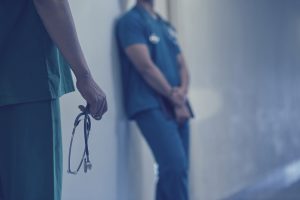
Patient Education
Educating patients is a cornerstone of enhancing their involvement in their own healthcare. Implementing standardized clinician-family communication at the patient bedside, with an emphasis on family engagement and bidirectional communication, has been shown to decrease the frequency of harmful medical errors and positively impact the family experience. Patients should be encouraged to ask about unfamiliar tests, unplanned diagnostic tests, and medications, and to verify the correct surgical site. Such active participation can be critical in avoiding medical errors.
Medical professionals have an ethical responsibility to provide comprehensive information to patients, involving them in the decision-making process. This includes using easy-to-understand language and providing relevant materials that are solely intended for patient use. Overcoming barriers to understanding, such as language and cultural differences, is also crucial. Employing translators or using tools like Google Translate can significantly boost patient satisfaction and compliance.
Support Networks
Support networks play a vital role in patient involvement by providing a platform for sharing experiences and information. These networks can be especially beneficial in managing chronic diseases or recovery from surgery, where peer support can contribute to better health outcomes. Healthcare providers should facilitate the creation of these networks, guiding patients towards appropriate resources and group support activities that can enhance their understanding and engagement in their health management.
Feedback Mechanisms
Feedback mechanisms are essential for promoting patient participation and enhancing the quality of care. Actively seeking patient feedback on their experiences and expectations not only informs service improvement but also builds trust. This, in turn, maximizes the appropriateness of services and the efforts to improve them. A good feedback system should be independent of health service providers to ensure the reliability of the data collected and to increase patients’ confidence in the protection of their confidentiality.
The General State Council Health (GSCH) platform exemplifies an effective feedback system. It accepts all kinds of nonurgent appeals, including patient feedback, and operates under the guidance of the General Office of the State Council. This unified, transparent, and impartial platform greatly encourages feedback from patients and families, providing evidence to guide healthcare organizations in improving the overall patient experience and the quality of services provided.
By implementing these strategies, healthcare providers can foster a more inclusive and participatory environment, which not only improves service and patient outcomes but also encourages a higher level of compliance from patients in the treatment process. This collaborative approach is instrumental in reducing the risks associated with medical malpractice.
Learning from Other Countries
Successful Reforms
Several countries have adopted innovative approaches to handle medical malpractice, moving away from traditional litigation systems. New Zealand, Sweden, and Denmark, for instance, have implemented administrative compensation systems, often referred to as “no-fault” systems. In these systems, patients can file claims for compensation without the need to prove negligence by healthcare providers. This approach not only simplifies the process but also uses the information from claims to enhance patient safety measures. Such systems have been effective in reducing liability costs and improving access to compensation for injured patients.
In New Zealand, the Accident Compensation Corporation (ACC) administers a scheme that covers treatment and rehabilitation costs, earnings compensation, and other benefits without the need to establish fault. This system emphasizes community responsibility and aims to distribute the economic consequences of injuries across the community, thereby reinforcing social solidarity.
Sweden introduced a similar model in 1975 with the establishment of the Patient Insurance Fund, which is funded by county tax and contributions from private practice healthcare providers. This system allows patients to apply for compensation through a straightforward process, and decisions on claims are made based on the causality between treatment and injury, rather than on proving negligence.
Failures and Lessons
Despite the successes, there are significant challenges and lessons to be learned from these international experiences. One major challenge is the cultural and systemic differences that may hinder the adoption of such models in countries like the United States. For example, the strong presence of private insurance and legal systems in the U.S. poses a formidable barrier to implementing a no-fault system. Health insurers and tort attorneys, who have significant influence over Congress, may resist changes that could undermine their economic interests.
Furthermore, countries like Italy and Germany have explored extrajudicial methods such as arbitration boards and advisory committees to resolve medical malpractice claims. These systems aim to provide rapid resolution to disputes, reducing the burden on both patients and healthcare providers. However, the voluntary nature of these systems and the reliance on professional consensus highlight potential limitations in accountability and enforceability.
The experiences of these countries illustrate that while administrative and no-fault compensation systems can offer more efficient and patient-centered approaches to handling medical injuries, they also require strong political will and societal consensus to overcome entrenched interests and cultural barriers. These international examples provide valuable insights into the potential benefits and pitfalls of reforming malpractice systems, emphasizing the need for careful consideration of local contexts and stakeholders’ interests in any proposed reforms.
Conclusion
Through a comprehensive examination of strategies to minimize healthcare malpractice issues, this article underscores the essence of robust communication, continuous medical education, technology integration, and the initiation of strong policies and procedures. These components are foundational in building a healthcare system that not only prioritizes patient safety but also fosters a culture of transparency and accountability. The significance of proper documentation and patient involvement in their own care is highlighted as critical in reducing the incidence of medical errors, thereby enhancing the quality of healthcare delivery and patient outcomes.

Observations from countries that have successfully implemented reforms suggest the potential for innovative approaches to malpractice management, emphasizing the importance of adapting lessons to local contexts. As healthcare continues to evolve, the adoption of these multifaceted strategies will be crucial in addressing the challenges posed by medical malpractice. By fostering an environment of continuous improvement and learning from both successes and failures in the field, the healthcare sector can move towards a future where patient safety and care quality are paramount, ultimately reducing the frequency and impact of malpractice issues.
Please also review AIHCP’s Legal Nurse Consulting Program, as well as its Healthcare Legal and Malpractice Consultant Program and Healthcare Ethics Consultant Program. Expert advice is key in a world where a lawsuit or malpractice can occur. It is important to understand the ethical procedures and standards of each profession to help reduce and minimize. These certified professionals can help prevent issues as well as help if issues arise.
FAQs
1. What are the key strategies for preventing medical malpractice? The four C’s of medical malpractice prevention are crucial for healthcare providers to minimize legal risks. These are: compassion, communication, competence, and charting. By adhering to these principles, medical professionals can improve their interactions with patients and reduce the likelihood of facing malpractice lawsuits.
2. How can healthcare providers reduce the possibility of litigation? Healthcare providers can minimize litigation risks by implementing several critical strategies:
- Ensuring strict adherence to regulatory compliance.
- Developing clear and comprehensive policies and procedures.
- Continuously educating employees about potential legal issues and effective risk management.
- Maintaining diligent practices in information and record-keeping.
- Working with a competent legal team to handle legal matters efficiently.
3. What are effective measures to decrease medical errors in healthcare? To minimize medical errors, healthcare organizations can focus on:
- Prioritizing continuity of care to ensure that care is consistent and coordinated.
- Fostering a culture of communication among healthcare professionals to enhance the clarity and effectiveness of patient care.
- Implementing preventive measures to reduce unnecessary hospitalizations. These strategies help create a safer environment for patients and reduce the incidence of medical errors.
4. What steps can healthcare professionals take to safeguard against malpractice claims? Healthcare professionals can protect themselves from malpractice suits by employing three main tools:
- Rigorous documentation of all patient interactions and treatments.
- Strict compliance with established policies and procedures.
- Obtaining and maintaining adequate malpractice insurance to provide financial protection in the event of a lawsuit.
Additional Resources
Teichman, P. “Documentation Tips for Reducing Malpractice Risk”. FPM. Access here
Virshup, B. “Strategic risk management: reducing malpractice claims through more effective patient-doctor communication”. Am J Med Qual . 1999 Jul-Aug;14(4):153-9. doi: 10.1177/106286069901400402. National Library of Medicine. Access here
Baer, A. (2024). “Using evidence-based strategies to help reduce malpractice risk”. Wolters Kluwer. Access here
Westgate, A (2015). “Four Ways to Reduce Your Malpractice Risks”. Physicians Practice. Access here
McCranie, F. (2023). “MEDICAL MALPRACTICE AND HEALTHCARE REFORM: CURRENT CHALLENGES AND SOLUTIONS”. Access here


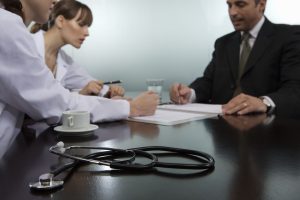

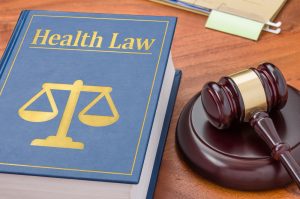
 Written by Veronica Turner
Written by Veronica Turner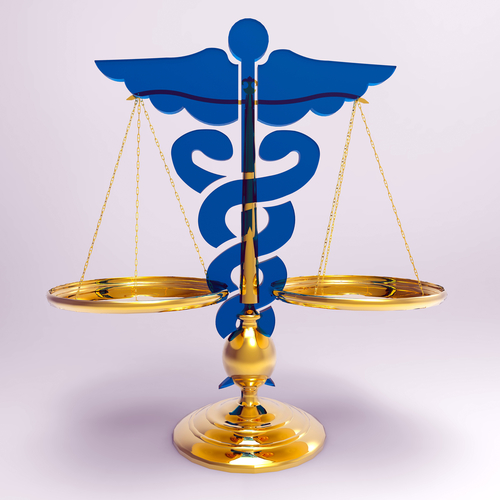 Written by Mr. Mark San Juan,
Written by Mr. Mark San Juan,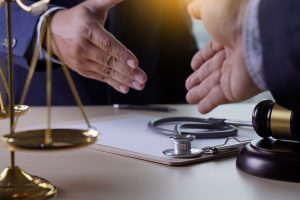
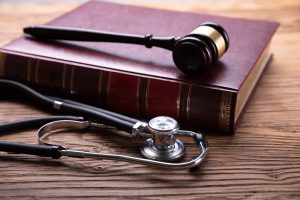

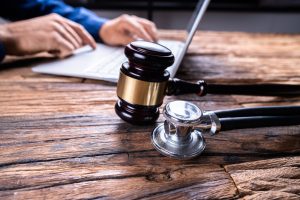
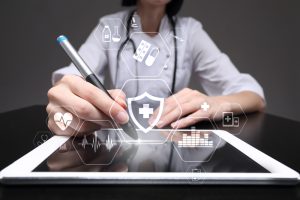
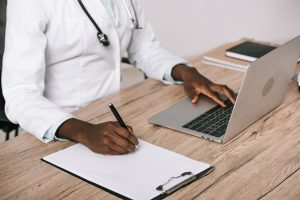


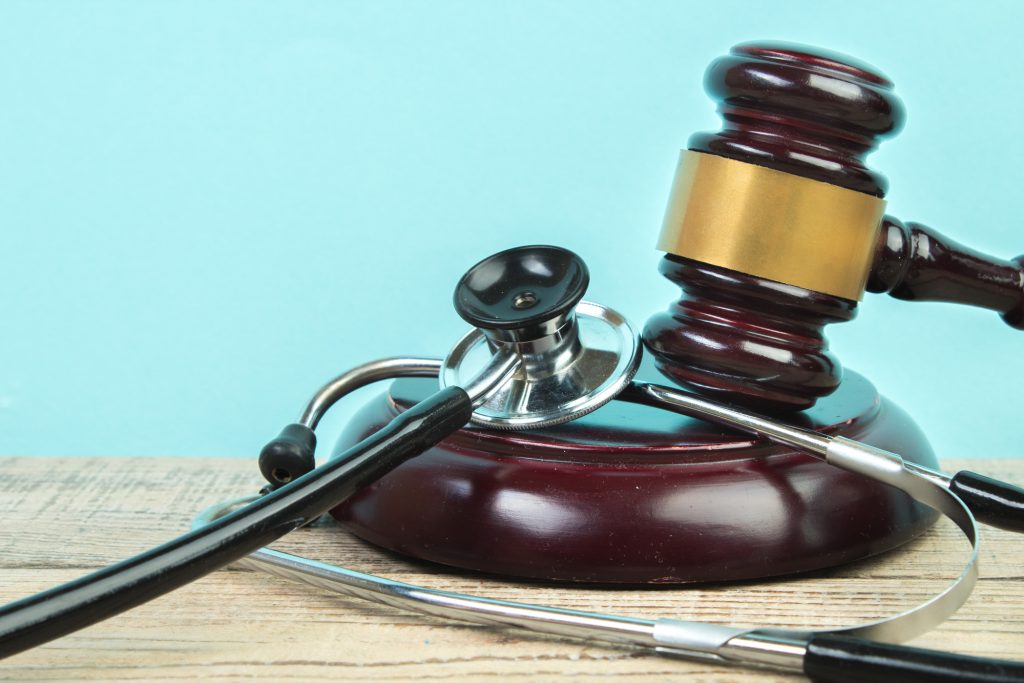 Written by Jim Ragain
Written by Jim Ragain